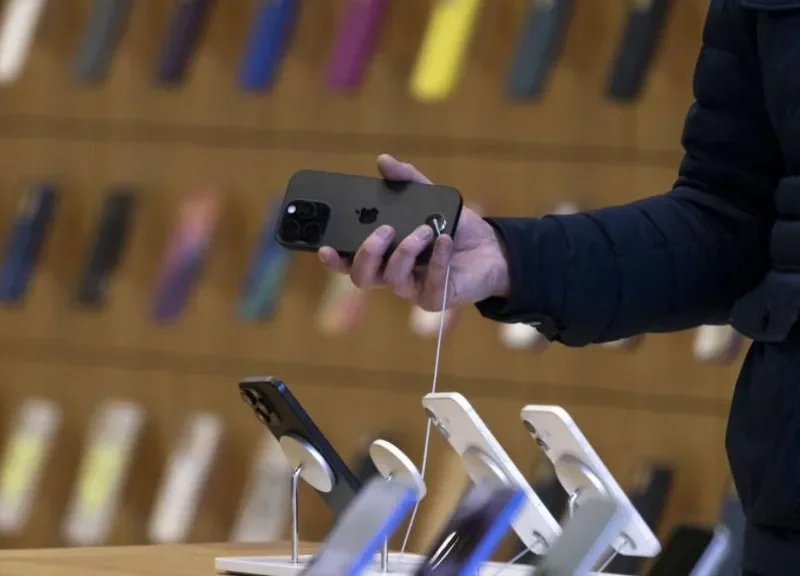Apple’s iPhone sales declined at the end of last year, as the company’s launch of new artificial intelligence (AI) features received a tepid response.
CEO Tim Cook stated that these features contributed to stronger sales in regions where they were available, such as the U.S. However, overall iPhone sales fell by approximately 1% year-over-year, reaching $69.1 billion (£55 billion).
Apple is also facing additional challenges, including declining sales in China and potential U.S. tariffs proposed by President Donald Trump. He has suggested imposing tariffs of up to 60% on products manufactured in China, where Apple produces a significant portion of its devices. The timing and exact details of these tariffs remain uncertain.
Addressing investors on Thursday, Cook said Apple was closely monitoring the situation.
The company began integrating AI features into its products last year in the U.S., with investors hoping this innovation would boost sales. Many consumers, however, are holding onto their devices longer, contributing to slower growth. Apple plans to expand these AI capabilities to more languages in April.
Some AI features have faced scrutiny. Earlier this month, Apple’s AI-powered news summaries were criticized for frequent inaccuracies, including errors in BBC headlines. The company suspended the feature after over a week of backlash.
Despite these setbacks, Cook highlighted a record number of iPhone upgrades from existing users.
Apple’s overall revenue increased by 4% to $124.3 billion, driven by higher computer sales and strong growth in its services division, which includes Apple TV, Apple News, and Apple Pay. Profits also rose 7% year-over-year, reaching $36.3 billion.
Emarketer analyst Jacob Bourne suggested that Apple must accelerate its AI rollout and explore new product categories to maintain its competitive advantage.
“Apple’s performance remains strong, but the next few quarters will test its ability to balance a cautious strategy with market demand for AI-driven innovation,” he said.











